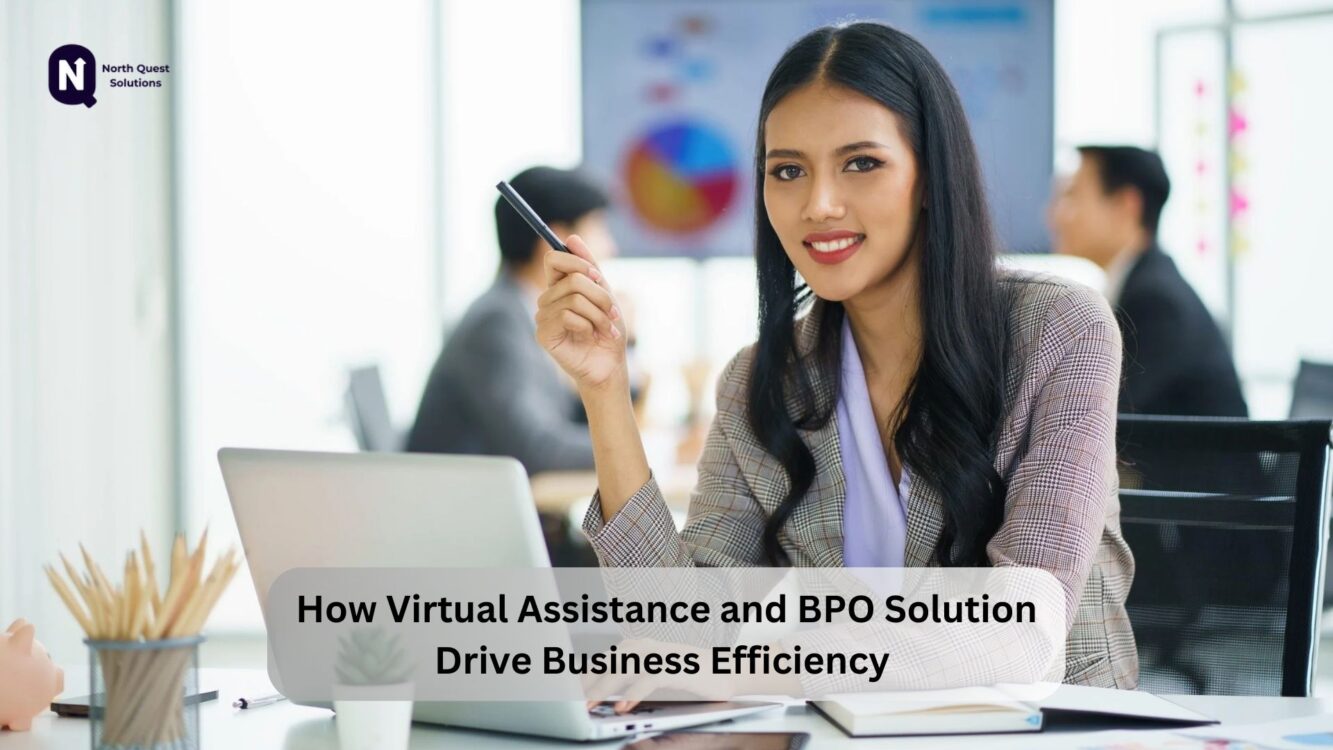How Virtual Assistance and BPO Solution Drive Business Efficiency
In nowadays’s rapid-paced enterprise world, performance and cost-effectiveness are vital to staying aggressive. Organizations are increasingly more turning to Virtual Assistance (VA) and Business Process Outsourcing (BPO) solutions to streamline operations, lessen overheads, and cognizance on middle competencies. These contemporary answers have ended up being quintessential for corporations of all sizes, offering unequalled flexibility and know-how. Understanding Virtual Assistance and BPO Solutions Virtual Assistance (VA): Virtual assistants are skilled professionals who provide administrative, technical, or creative support to businesses remotely. They handle tasks such as email management, scheduling, customer support, data entry, social media management, and more. With a virtual assistant, businesses can delegate time-consuming tasks and concentrate on strategic activities. Business Process Outsourcing (BPO): BPO involves contracting third-party service providers to handle specific business operations or functions. These services can include customer support, payroll processing, IT services, marketing, and even manufacturing. BPO providers leverage specialized knowledge and advanced technologies to deliver high-quality results. The Benefits of Virtual Assistance and BPO Solutions Cost Savings: By outsourcing tasks to virtual assistants or BPO providers, businesses can save on salaries, benefits, office space, and equipment. This is especially beneficial for startups and small businesses with limited budgets. Access to Expertise: Both VAs and BPO providers bring specialized skills and experience to the table. Whether it’s managing complex projects or providing exceptional customer service, their expertise can enhance the quality of your operations. Scalability: Businesses can easily scale up or down their outsourcing needs based on demand. This flexibility allows companies to adapt to market changes without the burden of hiring or downsizing staff. Increased Productivity: Delegating routine tasks to virtual assistants or outsourcing non-core functions to BPO providers frees up valuable time for in-house teams. This enables them to focus on innovation, growth strategies, and improving overall efficiency. Global Reach: With virtual assistance and BPO, businesses can tap into a global talent pool. This opens opportunities to work with professionals from different time zones, ensuring round-the-clock operations. Real-Life Applications Startups: Virtual assistants help startups manage their workload by handling tasks like email communication, research, and appointment scheduling, enabling founders to focus on growing their business. E-commerce: BPO providers assist e-commerce companies with customer support, order processing, and inventory management, ensuring seamless operations. Healthcare: Virtual assistants manage patient scheduling and billing, while BPO solutions handle claims processing and medical transcription, allowing healthcare professionals to focus on patient care. Key Considerations When Choosing VA and BPO Services Define Your Needs: Clearly outline the tasks or processes you want to outsource. This helps in selecting the right service provider with relevant expertise. Evaluate providers: Research and compare providers based on their track record, client reviews, and pricing models. Ensure they align with your business goals. Communication and Collaboration: Establish clear communication channels and expectations. Regular updates and feedback ensure that both parties are on the same page. Data Security: Ensure the service provider adheres to strict data security protocols to protect sensitive business information. Conclusion Virtual assistance and BPO solutions are changing the face of business operations, bringing about a mix of cost savings, efficiency, and expertise. Organizations can stay ahead of competition, optimize resources, and achieve sustainable growth by adopting these innovative approaches. Be it a start-up wanting to streamline its operations or an established one looking to enhance productivity, VA and BPO solutions are the way forward. Frequently Asked Questions (FAQs) 1. What tasks can a virtual assistant handle? Virtual assistants can manage tasks such as email correspondence, scheduling appointments, social media management, customer service, data entry, and research, among others. 2. How is BPO different from hiring in-house staff? BPO involves outsourcing specific processes to third-party providers, often resulting in cost savings and access to specialized expertise, whereas in-house staff are directly employed by the company and require additional resources like salaries and office space. 3. Are VA and BPO solutions suitable for small businesses? Absolutely! These solutions are highly beneficial for small businesses as they help reduce operational costs while providing access to professional services and expertise. 4. How do I ensure data security when outsourcing? Choose service providers that follow strict data protection protocols, comply with industry standards, and sign confidentiality agreements to safeguard your sensitive information. 5. Can virtual assistants work in different time zones? Yes, virtual assistants from various regions can provide support across different time zones, ensuring that your business operations run smoothly 24/7. 6. What are the typical costs for VA and BPO services? Costs vary based on the type of service, provider expertise, and the complexity of tasks. Generally, these services are more cost-effective than maintaining in-house teams for similar functions. 7. How do I get started with VA or BPO services? Start by identifying the tasks or processes you want to outsource, researching potential providers, and discussing your requirements to find the right fit for your business.
Read More
